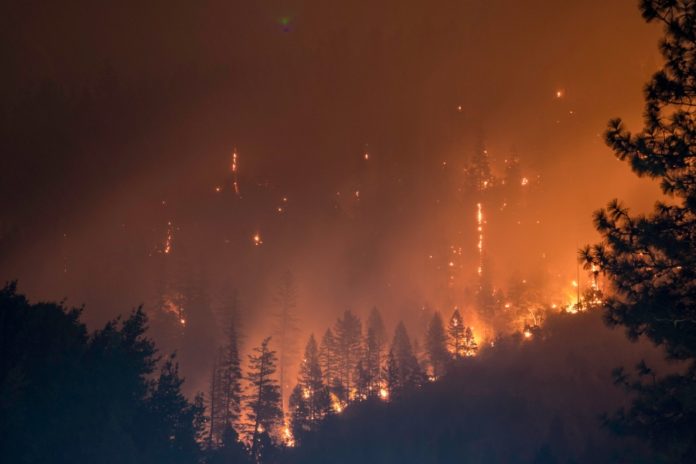Why It Matters
Humans, and many other animals, need oxygen to live. Naturally, therefore, we are concerned about what can deplete our supply of O2, thereby making Earth a place that is no longer habitable for us. Most people understand that trees and plants play a vital role in ecosystems around the world by turning CO2 into oxygen. Destruction of forests, rainforests and large areas of natural plantlife, like the Amazon, greatly concern us, as it can appear that our source of oxygen is in danger, and therefore so are we. However, this is not true.
In order to change our climate change path, we need to understand both the true impact of catastrophes, like the burning of forests, and correct the false beliefs about the consequences of these events. The Amazon’s destruction will not impact the amount of oxygen in the atmosphere in a way that is significant enough to impact our lives, however, its complete destruction would have other serious repercussions we should care about. This is what we are looking at below.
Sources
The primary source for this article is this piece: The Amazon Is Not Earth’s Lungs – The Atlantic.
It was written by a science journalist named Peter Brannen.
Key Takeaways
Here are the key points of the article:
- The Amazon does not produce 20% of the planet’s oxygen, as had been thought previously, it produces only 6%.
- Most of the Earth’s oxygen supply has been created over the millions of years of the planet’s life existing, from tree photosynthesis and other natural reactions.
- The most abundant gases released from volcanoes are water and carbon dioxide.
- Photosynthesizers (plants, algae, cyanobacteria) harness sunlight to separate H2 from the H20 and add it to the volcanic CO2 to make life materials such as sugars, carbohydrates, wood and leaves. The remaining 02 is released into the air.
- This remainder comes from organic carbon (plants, fungi, etc) not using as much oxygen as they put out in a lifetime.
- Over millions of years, this small leftover accumulates into the 20.9% oxygen levels in the current atmosphere – what we consider the “normal” concentration of oxygen in the air.
- The air we breathe is not merely created by living trees on Earth’s surface, but largely composed of organic carbon that has been underground for millions of years.
- Underneath West Virginia and England are sleeping jungles more than 300 million years old; under West Texas is a tropical coral reef from a 260-million-year-old ocean; under Saudi Arabia are seas of plankton from the age of dinosaurs.
- All of these underground reserves allowed oxygen to build up in our atmosphere, enough to sustain life.
- If the Amazon forest and all other living creatures, aside from humans, were burned down then the concentration of oxygen in the atmosphere would only drop by 0.05%, from 20.9 percent to 20.4 percent.
- There are many reasons to be appalled by the burning of Amazon’s forests, but the depleting oxygen supply is not the biggest problem. The true danger to oxygen supply comes from burning of fossil fuels.
- Burning of fossil fuels releases more CO2 into the atmosphere – CO2 that was trapped underground in the fossils.
- As CO2 levels go up in the atmosphere, O2 levels are reduced by the equivalent amount.
- This means fossil fuel burning is reversing all the years of photosynthesis that grew the oxygen supply in the atmosphere.
- The destruction of the Amazon rainforest, and other forests, threatens the continued existence of millions of species, from every branch of life. The loss of forests upsets the balanced ecosystems they are a part of. This breaks down food chains, leading to more climate change issues.
The Solutions
Big Picture Solution
The Amazon’s destruction is tragic and has been perpetuated by the Brazilian administration. It will take governments and environmental bodies around the world exerting pressure on the Brazilian administration to stop the burning of the rainforests.
Individual Actions
There are no specific individual actions to be taken, save for sharing the information above: that losing the Amazon has serious consequences, even if they aren’t related to the oxygen in the air.
References & Sources
You can find it here: The Amazon Is Not Earth’s Lungs – The Atlantic
It includes data from the following sources:
- Under Brazil’s Far-Right Leader, Amazon Protections Slashed and Forests Fall – NY Times
- A presentation by Shanan Peters, a geologist at the University of Wisconsin at Madison in June 2019, at the North American Paleontological Convention in Riverside, California.
By Aarthi Ratnam & Nick Gomez



